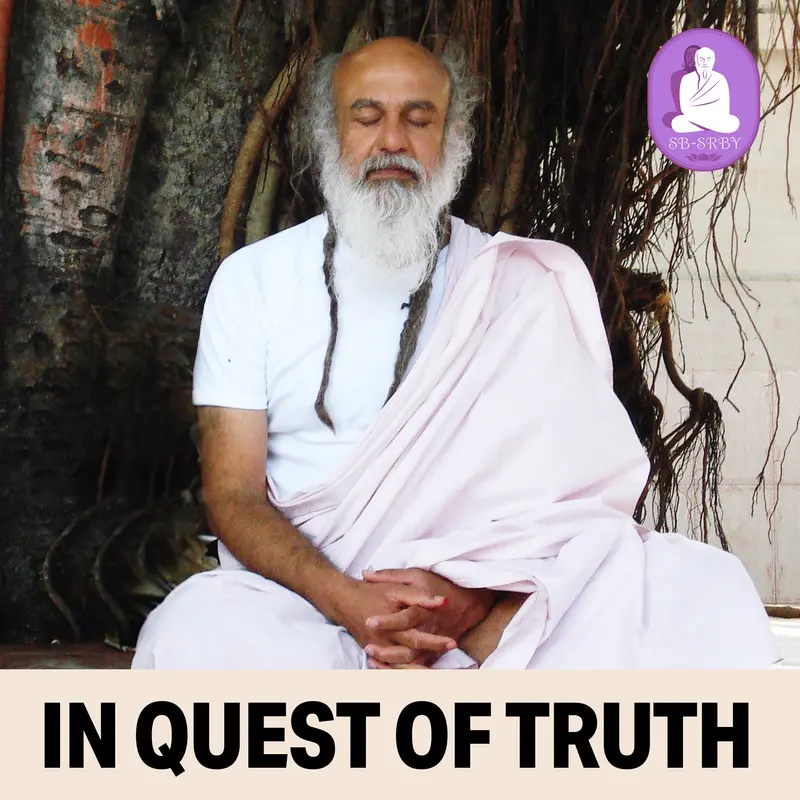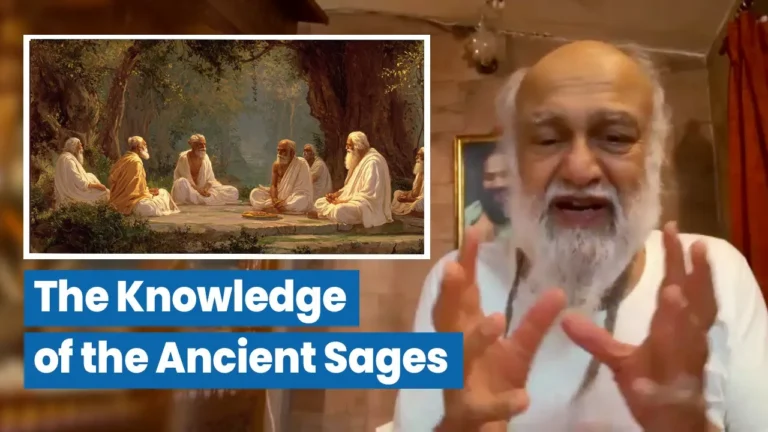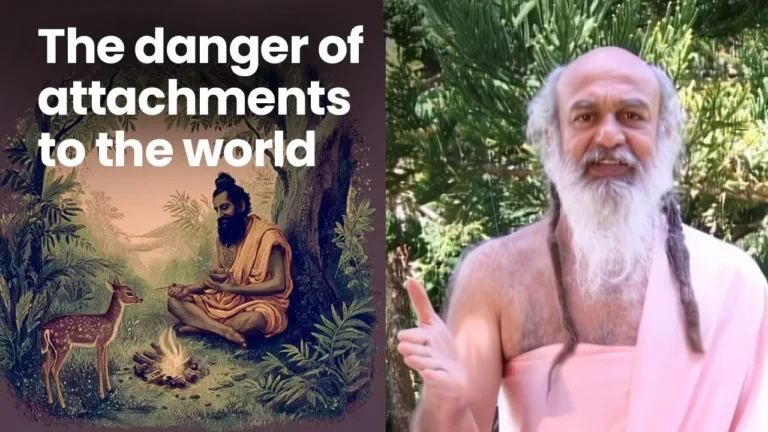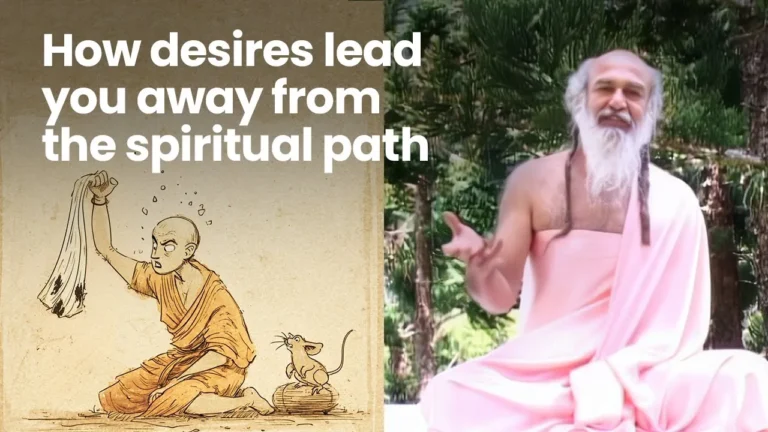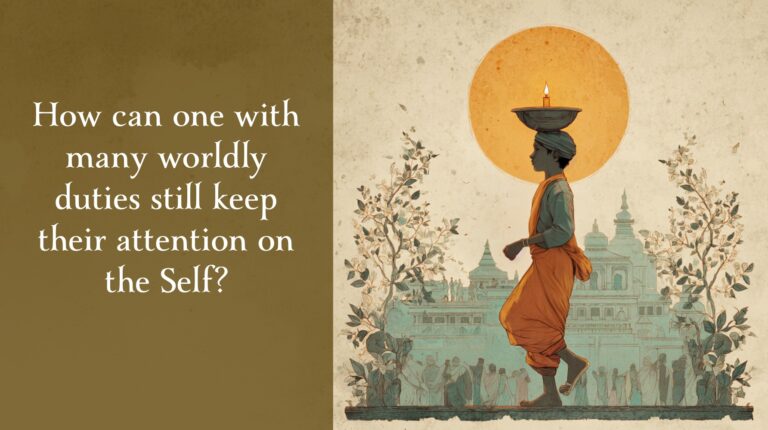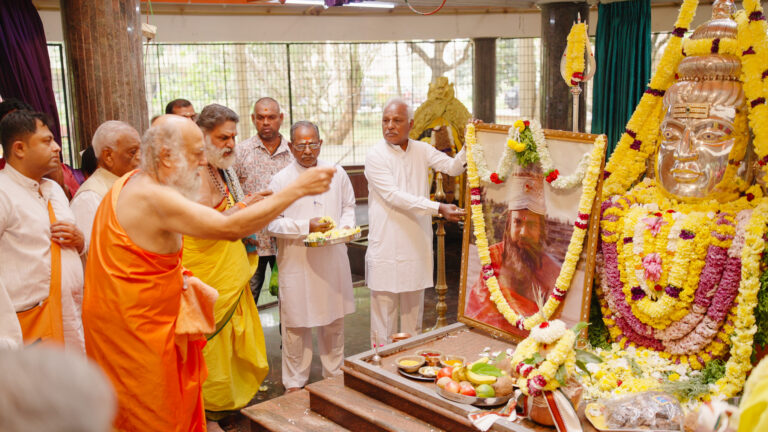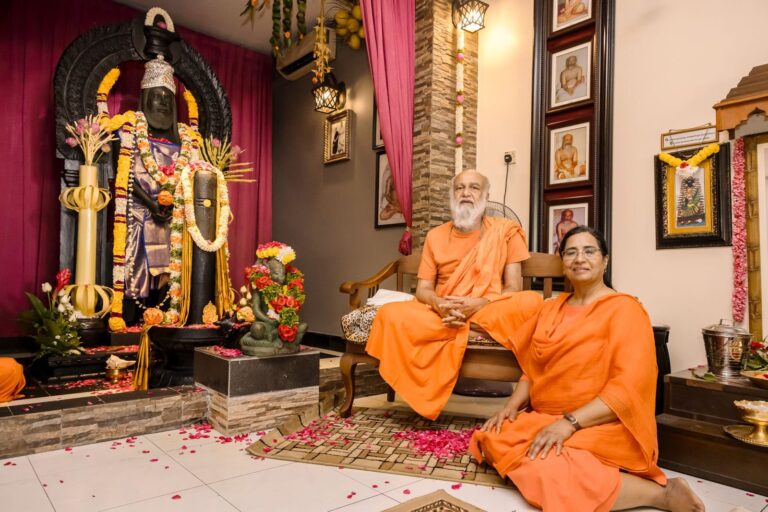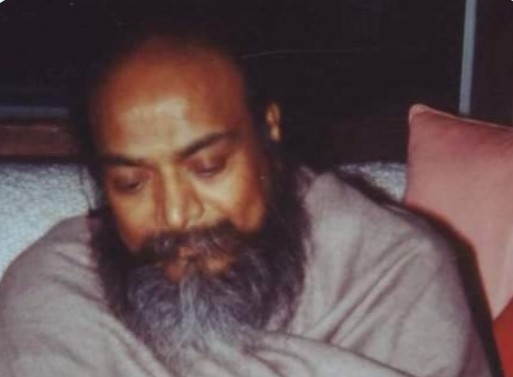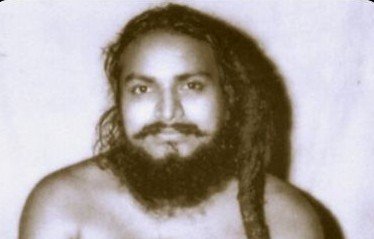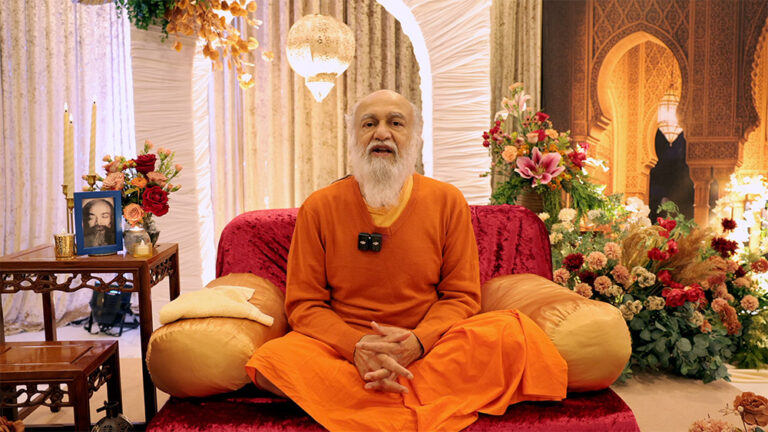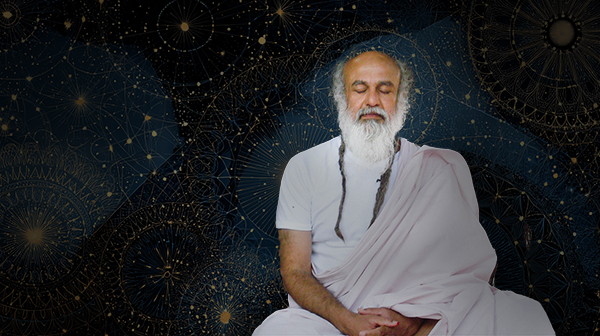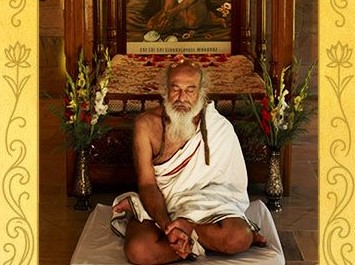October 2005 – Sunshine Coast Day 2
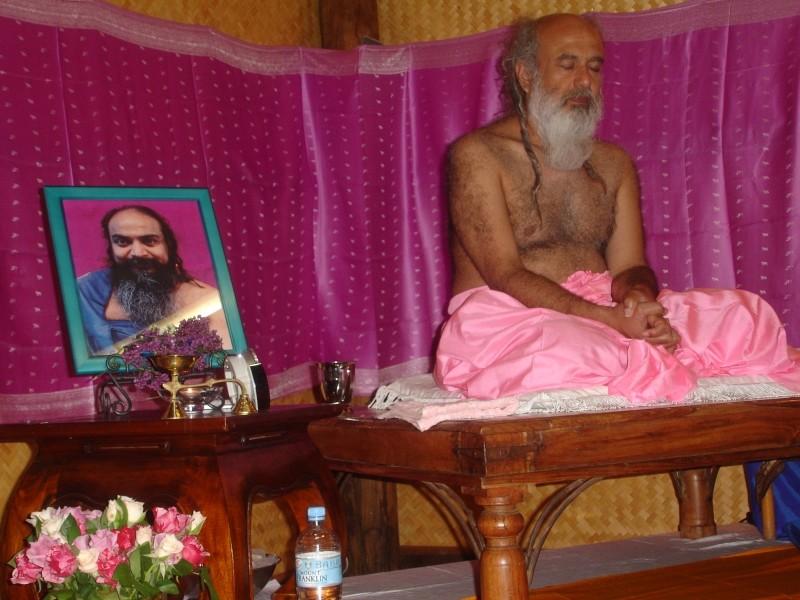
Baba Maharaj entered the hall, performed aarati and took Namaskaram to Swamiji’s altar and assumed His seat. He addressed the audience, reciting the Guru Pranam sloka from the Guru Gita, and then continued :
“Once again I take the opportunity to prostrate at the Lotus Feet of my beloved Guru Shivabalayogi and welcome you all. May you all be inspired to follow the path to Peace.
Yesterday we discussed the need for Dedication, Discipline and Patience. Today we shall talk about the need for sadhana – that is, your efforts to achieve. My beloved Guru Swamiji impressed the need for sadhana over talking and discussing. You need to understand the essence of what needs to be achieved.
As a child in India I liked to go to the quietude of temples. I became obsessed with death when I was young. The song ‘Bhaja Govindam’ struck me when I was very young – the song describes how one should “adopt the Divine Consciousness into your mind, because at the time of death, none of these worldly things – power, status, learning – will help you at that time.” Thus even coming into this body itself can be seen as an illness; it’s fine while everything is OK, but if the body becomes sick, we are troubled by it.
Fear, unhappiness, worries – these all cause bondage. Liberation is the relief from these troubles. For instance if we have a pain in our body, when that pain stops we get so much relief and peace.
While I was young, I used to think about things such as, “Why are we born, if we are just going to die? What happens to me at this time of death? Am I born along with this body, and will I become extinct when the body drops?” I used to question why there were fluctuations in this happiness – why is it not permanent? If the circumstances are conducive then we are happy, but as the days go by, circumstances change and then the happiness also changes. It is not permanent – it is only transitory. Everything in this world is like this – not permanent, but transitory. Because of this, they can’t give permanent happiness. I also asked, “What is the Truth behind all this? – What is the significance behind all this? If we worship an idol or a photo – what is behind it, that is God? Why does God appear partial to some and not others?”
So with all these questions, I was attracted to spirituality – I didn’t want to make a judgment about God, as I didn’t know God. Once at another program I was asked by one person, “Why is God allowing all this suffering?” I answered, “First find out who God is, before criticizing God.”
The ancient sages said God is beyond all imaginations. They pondered and thought, “Every trouble seems to be in my mind. So then let me set right this mind.” They thought that they could not set right the world, but they could set right their mind. This is how meditation came about. So they set about, “Let us first fix the mind, and then see how things are.” They found that as the mind quietened, they experienced peace. Then they found that this creation is all our imaginations.
Thus they found that they were not the physical body. Before this, they had thought, “This physical body is me.” They found also that it is through our own thoughts that we get into happiness and unhappiness. Just as with science, the scientists observe carefully and thus they came to understand things like ‘the world is round’, ‘the sun is stationary and the earth moves’ and so on. In this way these things came to be understood. This is how the truth came into knowledge – through observation.
In the same way, the ancient sages observed this physical body is the source of all troubles, and so they thought that if one could remove the consciousness of the body, then one can become liberated. Thus Swamiji recommended, “Find out first who you really are, then you will find where these troubles come from.”
Even as a child I used to argue with God. “Why have You caused all these troubles? – There is no peace for anyone. How did this all happen?” So often we hear people say that God has caused all this. But God doesn’t choose, “This person should be happy” or “That person should be happy.” Just like the sun doesn’t think, “My light should shine here, but not there.” This creation has occurred due to God, but not according to His wishes. To obtain that peace – prayer, meditation and all these things have come about. What really matters is not whether you are rich or poor – but whether your mind is at peace.
Be sincere – that is what is needed. If you are sincere, if I go away, then you will go on with meditation. If you are sincere, you will listen properly. I don’t force you – don’t bind you to the teacher or teachings. Ultimately the choice has to be yours. Sincerity and perseverance are both recommended.
Swamiji Maharaj gave me such great training and Realization. He gave me the Truth, the Path. He gave me inspiration. Thus we offer Him our reverence. Some rituals we do, therefore, as a mark of respect and good manners. Aarati shows reverence. Giving flowers and a garland also are an offering of love and respect. So when we show this reverence, it brings sincerity – then you will practice these teachings. Swamiji hasn’t demanded this. It is a reflection of His teachings to have good character. This training to respect the teacher and the teachings started even when I was very young. For instance at school the teachers would direct us, “Don’t touch your books with your feet.” This was as a mark of respect to the knowledge and to God.
Recently in India it has been Dasaratha – the nine day festival devoted to God as Mother. One of the days is dedicated to Saraswati who is the symbol of education. ‘Education’ does not mean just getting a degree; it means things like being able to overcome superstitions. This is a class where the teacher is trying to impart, “If you do like me, you can become like me.”
Thus in the sloka we recited at the beginning of the program, it starts with the words ‘Brahmanandam Paramasukadam’. The word ‘Brahmanandam’ means a Yogi is always in Supreme Happiness. It is difficult for the wonder of that state to be explained in words. There is a story about this –
A frog who was from the ocean, accidentally came and fell into a pond. He was reported to the king frog of the pond.
The King asked the frog from the ocean, “Where are you from?”
The frog replied, “I am from the ocean.”
“How big is it?” the King asked. “Is it this big?” and he made a big jump.
The ocean frog replied, “No, it is way beyond all this.”
So the King persisted, “Is it this big?” and made the biggest jump he could manage.
“No, it cannot be described. It is beyond all your imaginations.”
At this the king frog declared. “He is lying – throw him out!”
In the same way, I can simply only say that the truth is “Supreme Peace, beyond the dualities of this world.” It is so hard for me to describe it to you.
So Swamiji emphasized that we should never stop learning – even when one becomes a Yogi, we should go on learning always. He always emphasized also that one should never become arrogant.
Music is useful in spirituality. It should be soothing music – soothing to the brain and the mind. It helps the mind settle a little. One can maybe even use it before meditation if you feel the need.
Swamiji also taught that it was very important to experience. If one experiences something, it gives great strength to your knowledge. In that way, He always used to reply to questions, “Sit and meditate – then you will really know what things are.”
The sloka also describes that state as ‘Vimalam Achalam’ – it is ‘unmoved’. Thus when there is so much suffering, though it is very sad – still it is inspiring that humans continue to struggle to succeed. So in the same way, when you practice these teachings, you should have reverence, self-confidence, and the thought ’till the last breath of my life I will keep trying.’
We should chant, “I will dedicate myself to this. I will be disciplined.” Then one will meditate every day – you will not skip the practice, ever. One must be determined – ‘I may skip other things, but not this’.
Also we could chant, “I will have patience.” Then one will take time. The mind will simply take some time to come under control. The mind is slippery and infinite – it takes time to control it; it will keep slipping away in the beginning. To help in this control of the mind, when we meditate, we focus the mind by focusing the eyes at a point. Then the mind will become concentrated. When the mind becomes concentrated, then you can truly deal with your problems in life more successfully.
Just like a valiant warrior, one should think, “Whether I live or die, I will simply go on.” So if we find obstacles in our life, we must persevere and overcome them. Thus we become stronger and then when the Guru says, “Do this,” then you will do it, no matter what. Like this, when Swamiji said to me, “Life with Me will be hard”, I simply thought, “No worries.”
Adopt these words of mine into your mind – they are based on my experiences. If you adopt these words, then all things will become possible. Do take this opportunity while I’m here. At the morning sessions we will have some mantra chanting. This is a preliminary exercise that involves some of the beautiful mantras that have come down from ancient times, such as Gayatri Mantra.
‘Om Bhur Bhavah Svah
Tat Savitur Varenyam
Bhargo Devasya Dhimahi
Dhiyo Yonah Prachodayat ‘
It speaks of the Divine that has spread out in all directions (Bhur Bhuvah Svah). It is not inert, but is active like the Sun (Tat Savitur Varenyam). Then when we adopt God into our minds, all our unhappiness and sins will be washed away (Bhargo Devasya Dhimahi). Say you are always thinking of Baba. Your mind will be simply reciting, “Baba, Baba.” Then there will be no time to think of drugs, alcohol and all the forms of mischief. So like this we should adopt God into our minds. So then the sages prayed, “Dhiyo Yonah Prachodayat” – inspire me to put in efforts to attain this.
You might find you want to chant this before going into meditation – though during meditation itself, you should not recite any mantra. Eventually the mind will go introverted and remain in Peace. Ultimately the mind will merge with God – no entity will be left.
So if you understand the mind is unhappy, in turmoil, then you will understand the need to do this – God is within you.
May you all be blessed souls.
Questions & Answers
Question:
It has been scientifically proven that we only use a small section of our brain. Do we use more of the brain when we are enlightened?
Babaji:
It is possible, but for a Yogi it is not very interesting. You only need a little of the mind’s functioning to work in this world. So using more of the brain might be interesting for people of this world, but not for a Yogi.
This relationship between the brain and the mind is very peculiar. When the mind gets sucked into the brain, it becomes the brain’s food. As long as the brain is functioning, it reflects the mind. Then the problems start as the mind gets agitated. As a Yogi, one needs only a minimum amount of the mind to function in this world.
Question:
Do all paths lead to the same God? Can one combine practices – for instance can one follow Buddhist practices and this also?
Babaji:
All paths lead to the same place. The terminology may vary – for instance we may call that goal ‘Moksha‘, or ‘Nirvana‘ or ‘Liberation’, but it is all the same. One can practice both these together.
Question:
What is it that gets reborn?
Babaji:
Only the body is born. If the mind is not cleared of its previous impressions, it keeps watching the scene – what we call in spiritual terms ‘drishya‘. So then it gets attached to a body. Thus the conscious appears to get re-born and re-born. Finally when the consciousness is cleared completely – then there is no more re-birth.
Question:
When that happens, is there individuality remaining?
Babaji:
Actually when this happens, no individual is left. All the droplets have become one with the ocean. But as the body is retained, then work is performed in this world, and proper manners should be followed. For instance it is proper manners to say, “Shivabalayogi is my Guru and I am His disciple.”
Question:
When you say You were ‘put into Tapas‘, was that Samadhi ?
Babaji:
An initiation was given. I used to just close my eyes and the mind went still in a Samadhi. Already I had been working in the world for 20 years serving my Guru.
The technologies are difficult to explain.
My mind was attached to Shivabalayogi, so for me, when the mind had become 100% concentrated, perhaps the mind made Shivabalayogi appear before me, and initiate me. After I was lead into the room, I was made to sit and the mind became silent. I found when I came out of that state, none of my previous interests remained – there was no interest to serve, sing bhajans, and so on.
I didn’t myself have the idea, “I should do this” – it was not planned. When the time is ripe, it simply happens.
Just like for Buddha – He saw an old man, an ill person, a monk. From this He got inspiration from within, and he went into meditation. The inspiration comes from within ultimately.
Question:
Is Tapas required for Self Realization?
Babaji:
Yes, Tapas is required. It is like if you want cooked vegetables then you need to cook them – there is no other way. Usually the mind is constantly attracted to this world. To turn it back to its true Self you need meditation, and from this you then go into Tapas. Just like you need different baking times for biscuits or bread, and so on. In the same way you might find that if you meditate for one hour then you can be peaceful in this world, but for Self Realization you will need more. So start with 45 minutes.
If I showed you a whole mountain and asked you to climb it, it would be too daunting for a person. So instead we say, ‘Take one step’, then after that, ‘Take another step’ and so on. You can’t do the whole thing in one single step. It is just like a soldier – he will become a Lieutenant, then a General and then Chief-of-Staff.
Question:
How can one do Tapas when they have the job, the dharma of being a mother?
Babaji:
There is a choice, but if you have the feeling of responsibility of being a mother, then one can do Tapas later, when one is ready. If you have family responsibility, for instance if you are looking after your mother, then make that your sadhana. Do it as a duty assigned from God. Like for me, I didn’t have imaginations of “I shall be the manager of an ashram” – I just simply did my job, and practiced meditation when I could, when Swamiji was not there. So then by doing this properly – as service to the Guru – the mind became settled. So then for me Tapas was easy. So do your work as service to God – then it becomes sadhana.
© 2005 SRBY, All rights reserved.

